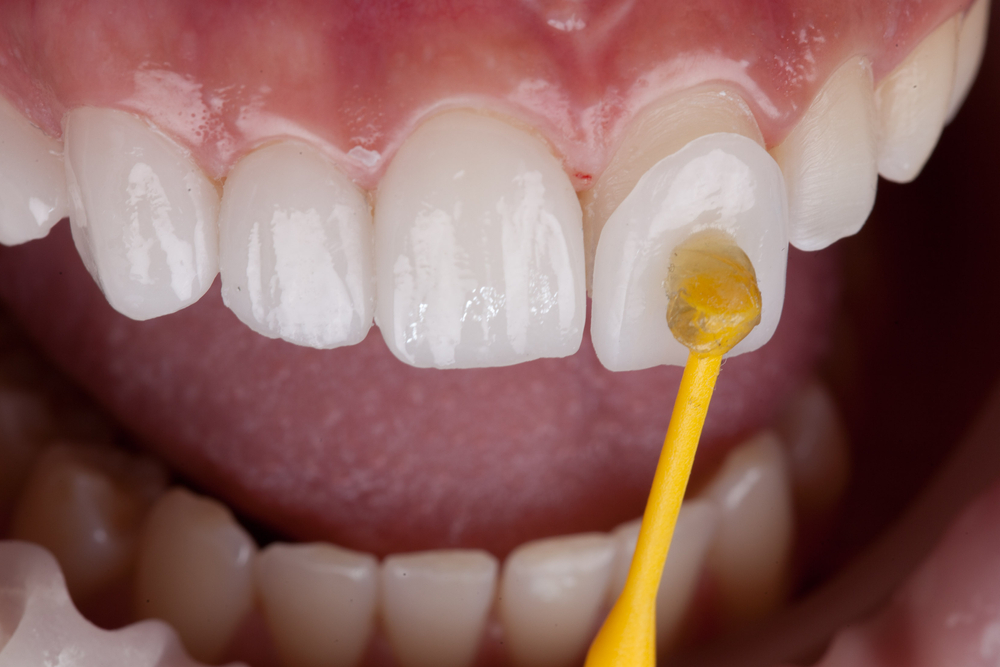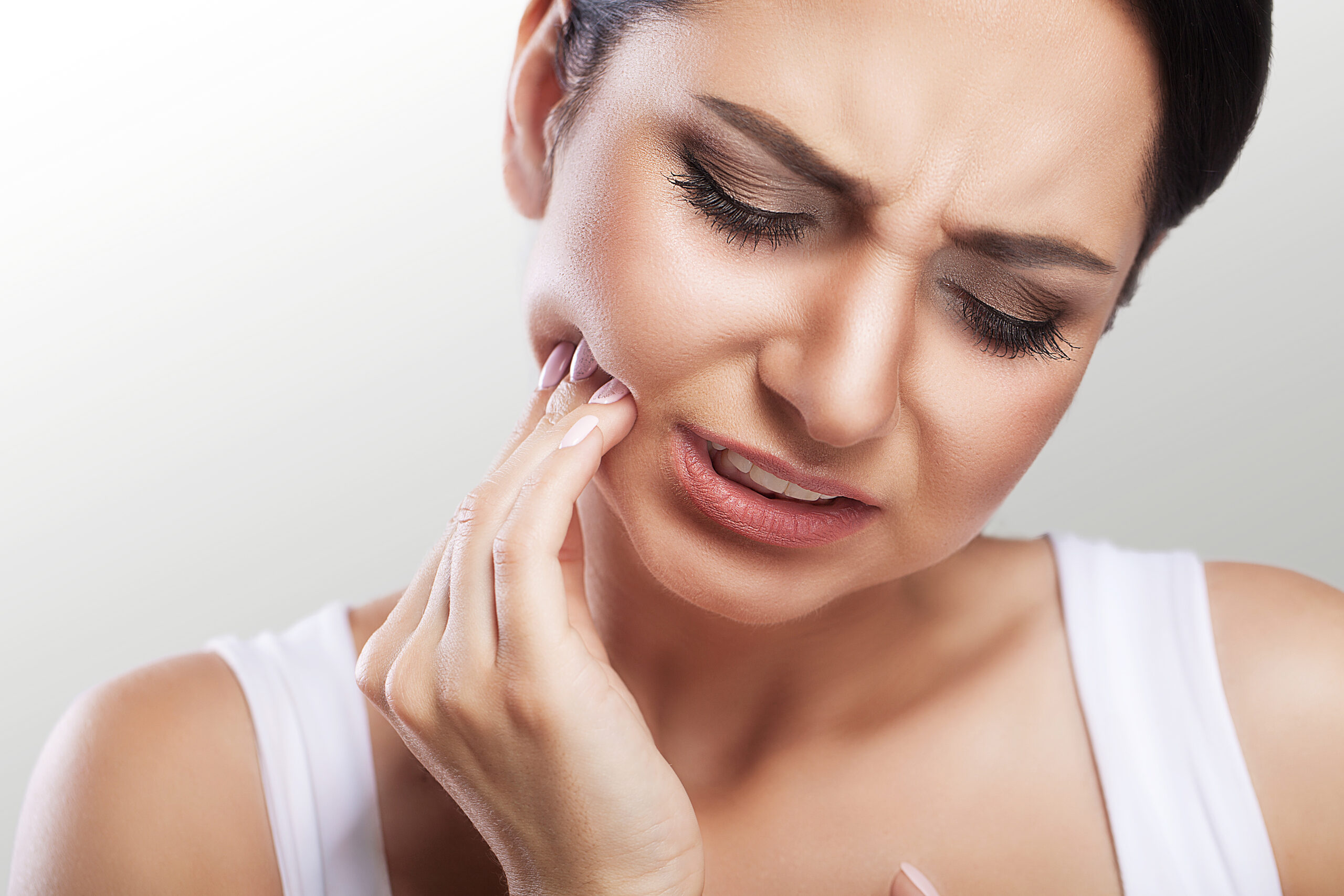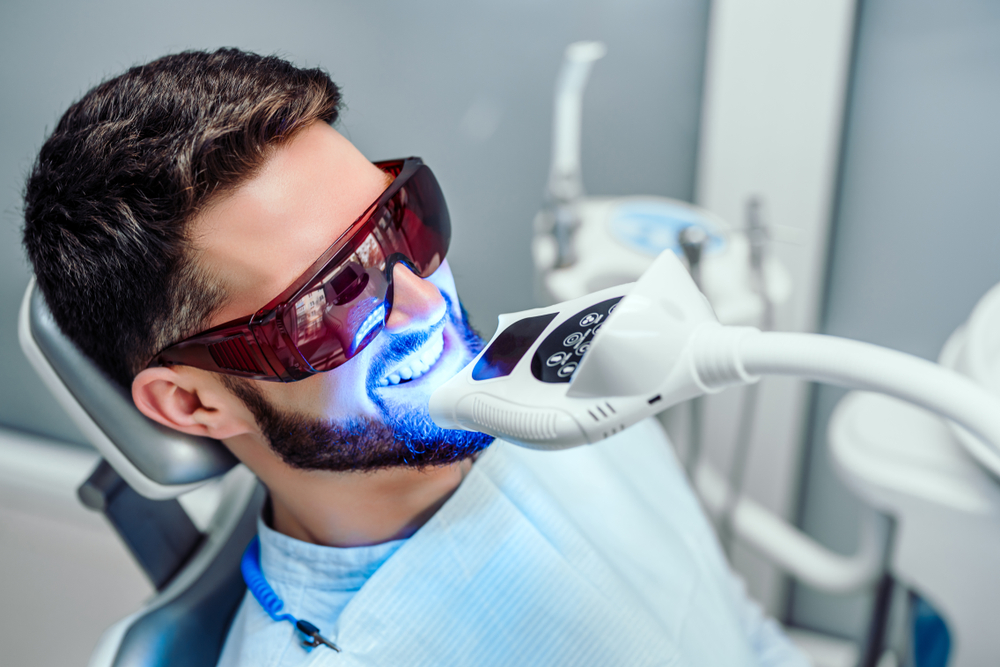Hello, friends! It’s the Smile Science Dental Spa team here, ready to dive into an important topic that we often discuss with our patients. Today, we’re addressing a habit that, unfortunately, can have severe consequences on your oral health – smoking.
If you’re a smoker, you’re likely aware that it’s not the best for your health. However, you might not be fully informed about how specifically it affects your oral health. That’s what we’ll be talking about today. The impact of smoking on your oral health can be devastating, and it’s essential to understand why.
Smoking and Oral Health: What’s the Connection?
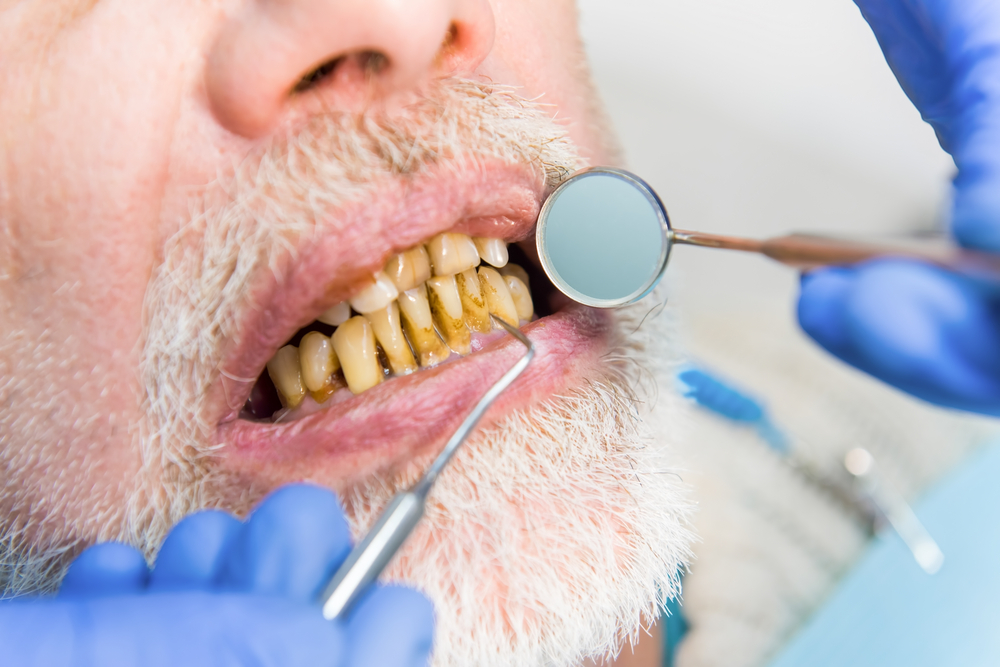
So, how does smoking wreak havoc on your oral health? Dr. Richard Dawson and Dr. John Turke from our team have spent a significant amount of time studying and treating smoking-related dental issues.
Smoking impacts your oral health in several ways, but it all starts with the harmful substances found in tobacco. Nicotine and tar, for instance, are the primary culprits. When you smoke, these substances make their way into your mouth and wreak havoc on your oral health.
Nicotine is a vasoconstrictor, meaning it reduces the amount of blood that can flow through your veins. In your mouth, this hinders the ability of your gums to fight off bacteria, increasing your risk of infections.
Tar, on the other hand, is a sticky substance that clings to your teeth. It’s not only responsible for yellowing your teeth, but it also creates a breeding ground for bacteria. The bacteria produce harmful acids that damage your teeth and gums, leading to various oral health issues, such as cavities and gum disease.
In the next sections, we’ll be exploring the specific health problems related to smoking, so stay tuned!
Specific Oral Health Problems Linked to Smoking

Let’s delve deeper into the specific oral health problems that are associated with smoking. Our team at Smile Science Dental Spa often treats these issues, and we want you to be aware of them, too.
The first on the list is periodontal (gum) disease. Remember when we discussed how nicotine hampers your gums’ ability to fight off bacteria? That’s a direct route to gum disease. This condition starts with inflammation and bleeding gums (gingivitis) and can progress to the point where it damages the bone that supports your teeth (periodontitis).
Next up is oral cancer. This is a grave concern and a leading cause of death among smokers. Tobacco contains multiple carcinogens (cancer-causing substances), and when you smoke, these carcinogens come into direct contact with your mouth tissues, increasing your risk of developing oral cancer significantly.
Then there’s tooth discoloration. The tar and nicotine in tobacco are exceptionally good at staining teeth. Over time, your pearly whites may turn yellow or even brown due to smoking. This staining can be stubborn and challenging to remove, even with professional whitening treatments.
Lastly, let’s not forget about bad breath. The chemicals left in your mouth from tobacco smoke not only cause bad breath but can also leave a bad taste in your mouth.
The Impact of Smoking on Dental Treatments
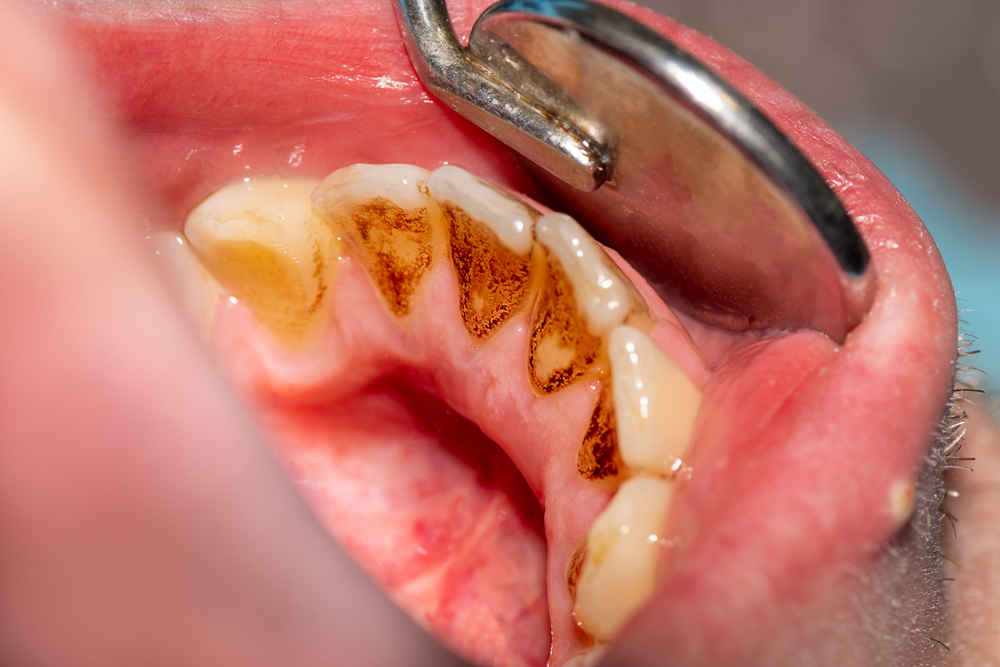
Smoking doesn’t just cause oral health problems; it can also complicate dental treatments. For instance, smoking can delay healing after dental surgeries, such as tooth extractions or periodontal treatments. This is because nicotine reduces blood flow, impeding your body’s ability to deliver nutrients and remove waste products from the healing site.
In addition, smokers also have a higher risk of implant failure. Dental implants require healthy bone and gum tissue to succeed. But as we’ve discussed, smoking can lead to gum disease and bone loss, thereby undermining the success of dental implants.
We hope that these points have helped illuminate why smoking and oral health don’t mix. However, it’s not all doom and gloom. The next sections will talk about what you can do to mitigate these risks.
Vaping: Is It a Safer Alternative?

In recent years, vaping or using electronic cigarettes has been promoted as a “safer” alternative to traditional smoking. But is it, really? The truth is, while vaping might seem less harmful due to the absence of tobacco and combustion, it’s not risk-free.
E-cigarettes still deliver nicotine, the addictive drug in regular cigarettes, cigars, and other tobacco products. Even though they eliminate some of the health risks related to tobacco smoke, they pose health risks of their own. For instance, the aerosol that vapers inhale and exhale can contain harmful substances like heavy metals and volatile organic compounds, which could potentially harm your oral health.
Specifically related to oral health, recent studies suggest that vaping could contribute to gum inflammation, dry mouth, and an increased risk of oral diseases. However, more research is needed to understand fully the long-term impact of vaping on oral health.
The bottom line? While vaping might be marginally better than traditional smoking, it’s not a healthful choice for your oral or overall health.
Turning Things Around: Quitting Smoking
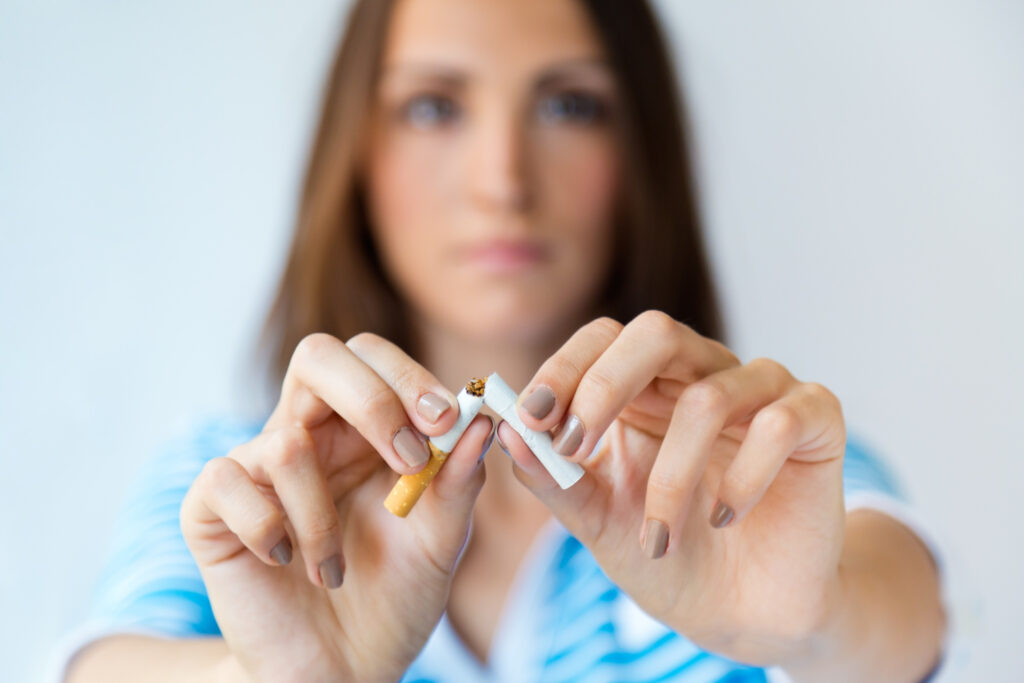
Now that we’ve laid out the bleak landscape of smoking and oral health, it’s time for some good news. Quitting smoking can greatly improve your oral health and reduce your risk of the issues we’ve discussed.
Quitting isn’t easy, but it’s absolutely achievable. Here are some tips to get started:
- Set a Quit Date: Having a specific date can help mentally prepare you for the task ahead.
- Find Your Motivation: Remind yourself daily why you’re quitting. For better oral health? To reduce cancer risk? Find your reason.
- Seek Support: Whether it’s from friends, family, or healthcare professionals, don’t be afraid to ask for help. There are also many resources and support networks available for people looking to quit smoking.
- Stay Active: Physical activity can help distract you from cravings and reduce their intensity.
At Smile Science Dental Spa, we understand that quitting smoking is a personal and sometimes challenging journey. Dr. Richard Dawson and Dr. John Turke are here to support you through this process. During your regular check-ups, we can provide resources, monitor your oral health improvement as you quit, and most importantly, provide the encouragement you need to keep going.
Stay tuned for our last two sections, where we will wrap up and provide some final thoughts on this critical topic.
Regular Check-ups: Key to Detect Early Problems
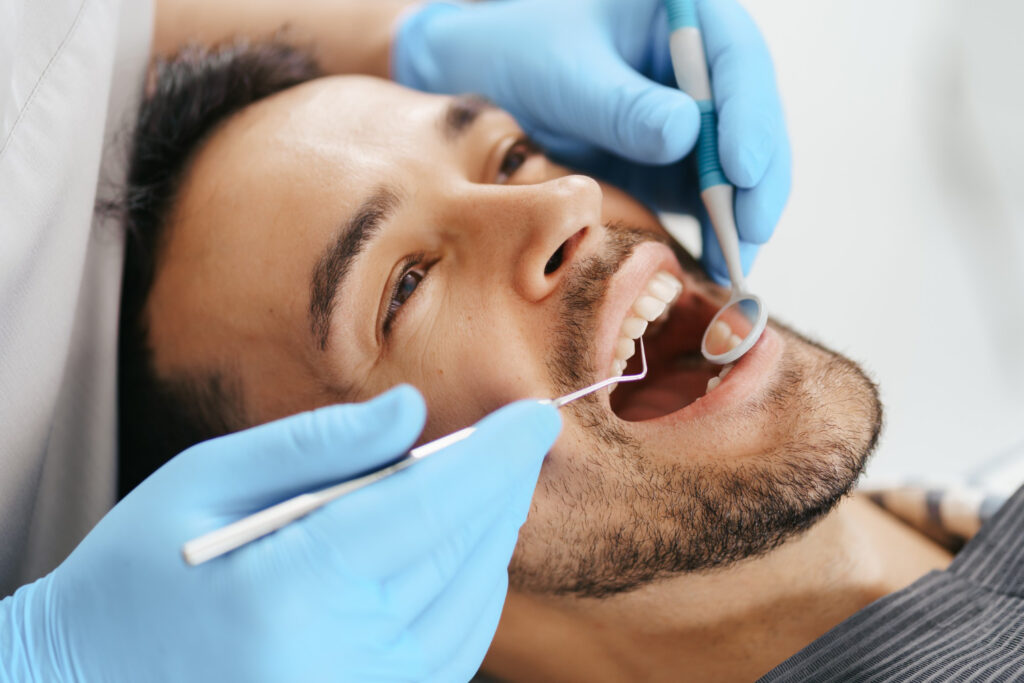
The key to managing and minimizing the harmful effects of smoking on your oral health is regular dental check-ups. Frequent dental examinations can help identify problems at an early stage and increase the chances of successful treatment.
Regular check-ups allow your dentist to keep a close eye on your oral health. This is crucial for smokers as they have a higher risk of developing oral health problems like gum disease, tooth decay, and oral cancer. Your dental visits can include professional cleanings, assessment of gum health, and oral cancer screenings.
At Smile Science Dental Spa, Dr. Richard Dawson and Dr. John Turke are highly experienced in identifying and treating oral health issues related to smoking. They can guide you through the steps to mitigate these problems and can also provide assistance in your journey to quit smoking.
Conclusion
The evidence is undeniable – smoking has a devastating impact on your oral health. It can stain your teeth, give you bad breath, and put you at high risk for gum disease and oral cancer. But remember, it’s never too late to quit.
Quitting smoking is one of the best things you can do for your oral and overall health. The journey might be challenging, but the rewards are worth it. Brighter smile, fresher breath, and most importantly, a healthier life – these are just some of the benefits that await you on the other side.
Here at Smile Science Dental Spa, our team is ready to support you. Whether it’s regular check-ups for early detection of potential issues or just providing resources to help you quit smoking, we’re with you every step of the way.
The road to better oral health starts with one simple step. Schedule a visit with us today and let’s embark on this journey together. Remember, a healthier, brighter smile is always within your reach.
Citations and Further Reading
- Tobacco and its Relationship with Oral Health
- The impact of smoking on oral health and patient assessment of tobacco cessation support from Turkish dentists
- Oral and Periodontal Implications of Tobacco and Nicotine Products
- Impact of Smoking on Oral Health: Knowledge and Attitudes of Croatian Dentists and Dental Students
- The impact of smoking on periodontal status and dental caries




